The Importance of PCB Predictability
PCB predictability is the ability to accurately forecast and control the outcomes of your PCB manufacturing process. It involves understanding the variables that affect the manufacturing process and implementing strategies to minimize their impact. By achieving a high level of predictability, you can:
- Reduce production delays
- Minimize manufacturing costs
- Improve product quality
- Enhance customer satisfaction
- Increase overall profitability
Factors Affecting PCB Predictability
Several factors can influence the predictability of your PCB manufacturing process. Understanding and addressing these factors is essential to achieve a high level of predictability.
1. Design Complexity
The complexity of your PCB design can significantly impact the predictability of your manufacturing process. Complex designs with high component density, fine pitch sizes, and advanced features like blind and buried vias can increase the risk of manufacturing defects and delays.
To mitigate this risk, it is essential to:
- Collaborate closely with your PCB design team and manufacturers
- Follow design for manufacturability (DFM) guidelines
- Conduct thorough design reviews and simulations
- Utilize advanced design tools and techniques
2. Material Selection
The selection of materials for your PCB can also affect predictability. Using non-standard or hard-to-source materials can lead to supply chain disruptions and manufacturing delays.
To ensure predictability, it is recommended to:
- Choose commonly available and industry-standard materials
- Work with reliable suppliers who can provide consistent material quality
- Consider alternative materials with similar properties if necessary
- Maintain accurate inventory records and forecasting
3. Manufacturing Process Control
Maintaining strict control over your manufacturing process is crucial for achieving predictability. This involves implementing robust quality control measures, monitoring key process parameters, and continuously improving your processes.
To enhance process control, you should:
- Establish clear standard operating procedures (SOPs)
- Invest in advanced manufacturing equipment and automation
- Implement statistical process control (SPC) techniques
- Regularly train and upskill your manufacturing personnel
4. Supply Chain Management
Effective supply chain management is essential for ensuring the predictability of your PCB manufacturing. Disruptions in your supply chain, such as material shortages or supplier delays, can significantly impact your production schedule and costs.
To mitigate supply chain risks, you should:
- Develop strong relationships with reliable suppliers
- Implement a robust supplier evaluation and monitoring system
- Maintain adequate inventory levels and safety stocks
- Consider multi-sourcing strategies for critical components
5. Testing and Inspection
Thorough testing and inspection throughout the manufacturing process can help identify and address potential issues early, thereby improving predictability. Implementing comprehensive testing and inspection protocols can help you:
- Detect and rectify manufacturing defects quickly
- Ensure that your products meet the required quality standards
- Reduce the risk of product failures and returns
- Minimize the need for costly rework and repairs
Strategies for Improving PCB Predictability
Now that we have explored the factors affecting PCB predictability, let’s discuss some strategies you can implement to improve the predictability of your high-end PCB manufacturing.
1. Implement a Robust DFM Process
Integrating DFM principles into your PCB design process can significantly enhance predictability. By designing your PCBs with manufacturability in mind, you can:
- Reduce the risk of manufacturing defects and delays
- Optimize your design for cost-effective production
- Ensure compatibility with your chosen manufacturing processes
- Facilitate smooth communication between design and manufacturing teams
To implement a robust DFM process, you should:
- Establish clear DFM guidelines and checklists
- Conduct regular DFM training for your design team
- Utilize DFM analysis tools to identify and address potential issues early
- Collaborate closely with your manufacturing partners to incorporate their feedback
2. Invest in Advanced Manufacturing Technologies
Investing in advanced manufacturing technologies can greatly improve the predictability of your PCB manufacturing process. These technologies can help you:
- Automate repetitive and error-prone tasks
- Enhance process control and consistency
- Improve manufacturing speed and efficiency
- Reduce the risk of human error and variability
Some key advanced manufacturing technologies to consider include:
- Automated optical inspection (AOI) systems
- 3D solder paste inspection (SPI) systems
- Automated pick-and-place machines
- Robotic process automation (RPA) for material handling and logistics
3. Foster a Culture of Continuous Improvement
Establishing a culture of continuous improvement within your organization can help drive predictability in your PCB manufacturing process. By encouraging your team to constantly identify and address areas for improvement, you can:
- Optimize your processes and workflows
- Reduce waste and inefficiencies
- Enhance product quality and reliability
- Adapt to changing market demands and technologies
To foster a culture of continuous improvement, you should:
- Implement lean manufacturing principles and methodologies
- Encourage employee involvement and empowerment
- Regularly review and analyze your performance metrics
- Celebrate successes and learn from failures
4. Collaborate with Experienced Manufacturing Partners
Partnering with experienced and reliable PCB manufacturing partners can significantly enhance the predictability of your high-end PCB manufacturing. These partners can provide:
- Expertise in advanced manufacturing techniques and technologies
- Insights into industry best practices and trends
- Flexibility and scalability to meet your changing production needs
- Access to a robust supply chain and logistics network
When selecting a manufacturing partner, consider factors such as:
- Track record and reputation in the industry
- Technical capabilities and certifications
- Quality management systems and standards
- Communication and collaboration processes
- Financial stability and long-term viability

The Benefits of Achieving PCB Predictability
By implementing the strategies discussed above and achieving a high level of predictability in your PCB manufacturing process, you can realize numerous benefits for your organization, such as:
- Reduced Production Costs
Predictability helps minimize manufacturing defects, rework, and scrap, thereby reducing overall production costs. By catching and addressing issues early in the process, you can avoid expensive fixes later on.
- Improved Time to Market
With a predictable manufacturing process, you can accurately forecast production timelines and deliver your products to market faster. This can give you a competitive edge in today’s rapidly evolving electronics industry.
- Enhanced Product Quality and Reliability
Predictability enables you to consistently produce high-quality PCBs that meet or exceed customer expectations. By minimizing defects and variability, you can enhance the reliability and performance of your products.
- Increased Customer Satisfaction
Delivering your products on time and with the required quality standards can greatly improve customer satisfaction. This can lead to increased customer loyalty, repeat business, and positive word-of-mouth referrals.
- Greater Profitability and Competitiveness
By reducing costs, improving quality, and enhancing customer satisfaction, predictability can help boost your overall profitability and competitiveness in the market. This can position your organization for long-term growth and success.
Frequently Asked Questions (FAQ)
- What is PCB predictability, and why is it important?
PCB predictability refers to the ability to accurately forecast and control the outcomes of your PCB manufacturing process. It is essential for ensuring that your products are consistently delivered on time, within budget, and meet the required quality standards. Predictability helps reduce production delays, minimize costs, improve quality, enhance customer satisfaction, and increase overall profitability.
- What are some key factors that affect PCB predictability?
Some key factors that can affect PCB predictability include design complexity, material selection, manufacturing process control, supply chain management, and testing and inspection. Understanding and addressing these factors is crucial for achieving a high level of predictability in your PCB manufacturing process.
- How can implementing a robust DFM process improve PCB predictability?
Implementing a robust design for manufacturability (DFM) process can help improve PCB predictability by reducing the risk of manufacturing defects and delays, optimizing your design for cost-effective production, ensuring compatibility with your chosen manufacturing processes, and facilitating smooth communication between design and manufacturing teams. This involves establishing clear DFM guidelines, conducting regular training, utilizing DFM analysis tools, and collaborating closely with manufacturing partners.
- What are some advanced manufacturing technologies that can enhance PCB predictability?
Advanced manufacturing technologies that can enhance PCB predictability include automated optical inspection (AOI) systems, 3D solder paste inspection (SPI) systems, automated pick-and-place machines, and robotic process automation (RPA) for material handling and logistics. These technologies help automate repetitive and error-prone tasks, enhance process control and consistency, improve manufacturing speed and efficiency, and reduce the risk of human error and variability.
- How can partnering with experienced PCB manufacturing partners contribute to predictability?
Partnering with experienced and reliable PCB manufacturing partners can significantly enhance the predictability of your high-end PCB manufacturing. These partners can provide expertise in advanced manufacturing techniques and technologies, insights into industry best practices and trends, flexibility and scalability to meet your changing production needs, and access to a robust supply chain and logistics network. When selecting a manufacturing partner, consider factors such as their track record, technical capabilities, quality management systems, communication processes, and financial stability.
| Factor | Impact on Predictability |
|---|---|
| Design Complexity | High complexity can increase the risk of manufacturing defects and delays |
| Material Selection | Non-standard or hard-to-source materials can lead to supply chain disruptions |
| Manufacturing Process Control | Strict process control measures are crucial for achieving predictability |
| Supply Chain Management | Disruptions in the supply chain can significantly impact production schedule and costs |
| Testing and Inspection | Thorough testing and inspection can help identify and address potential issues early |
By understanding the factors affecting PCB predictability and implementing strategies to address them, you can save your high-end PCB manufacturing from potential disruptions and ensure long-term success. Investing in predictability will not only benefit your organization but also help you build strong relationships with your customers and stakeholders.
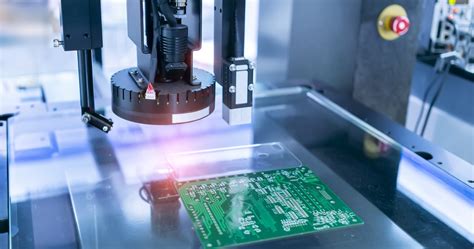
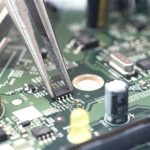
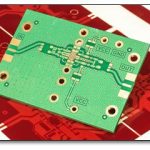
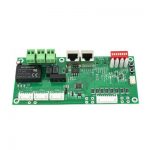
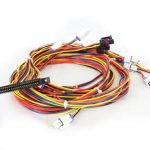
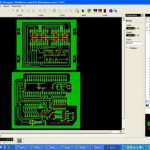
Leave a Reply